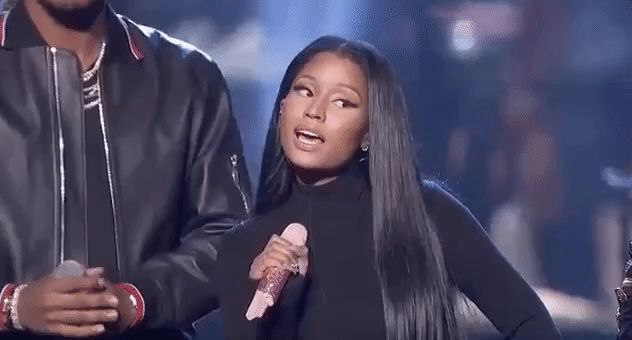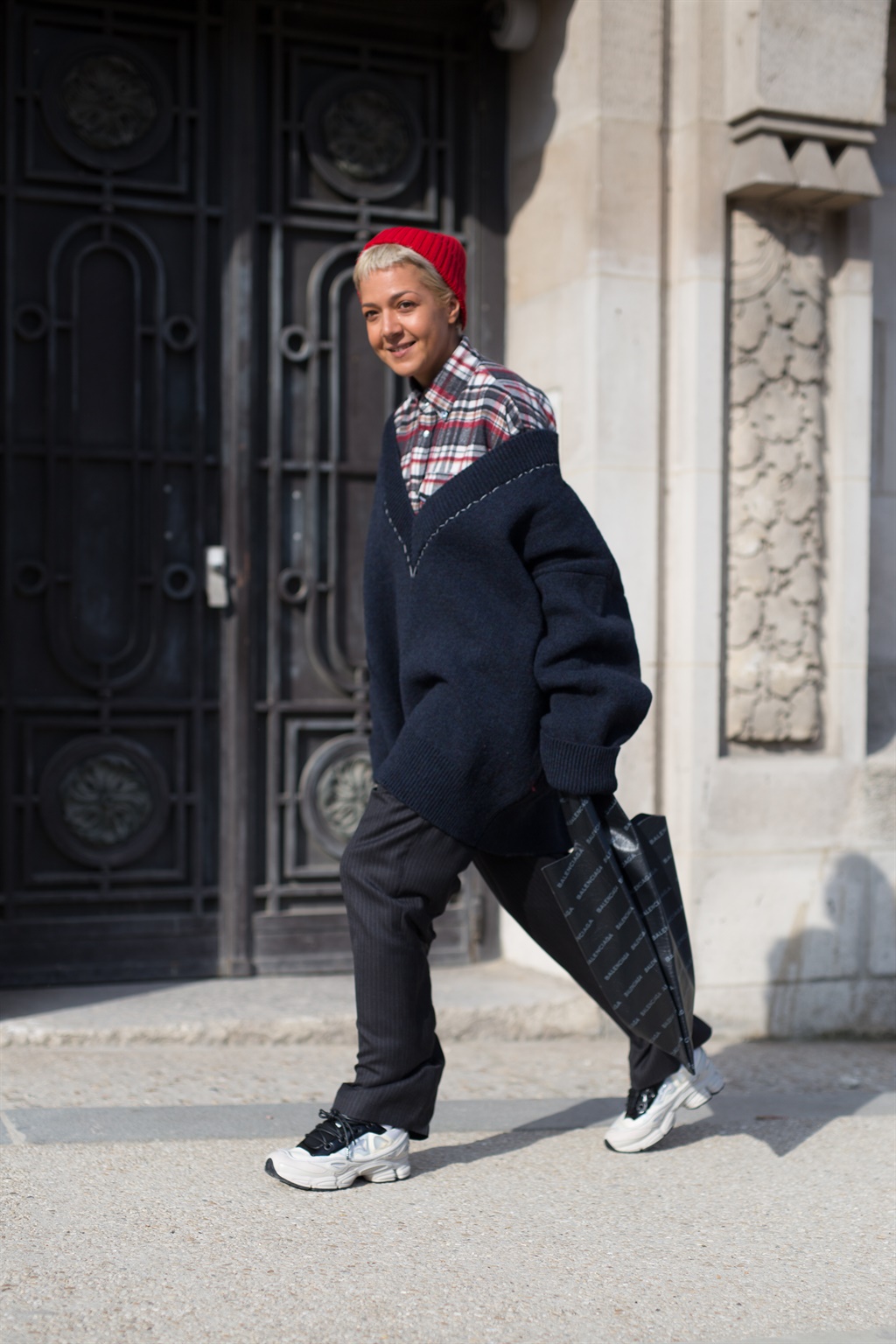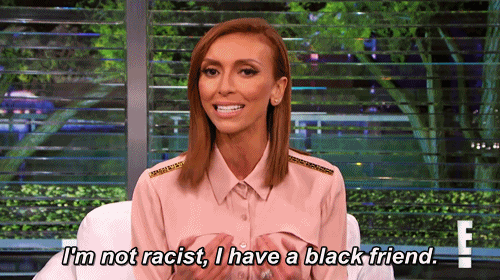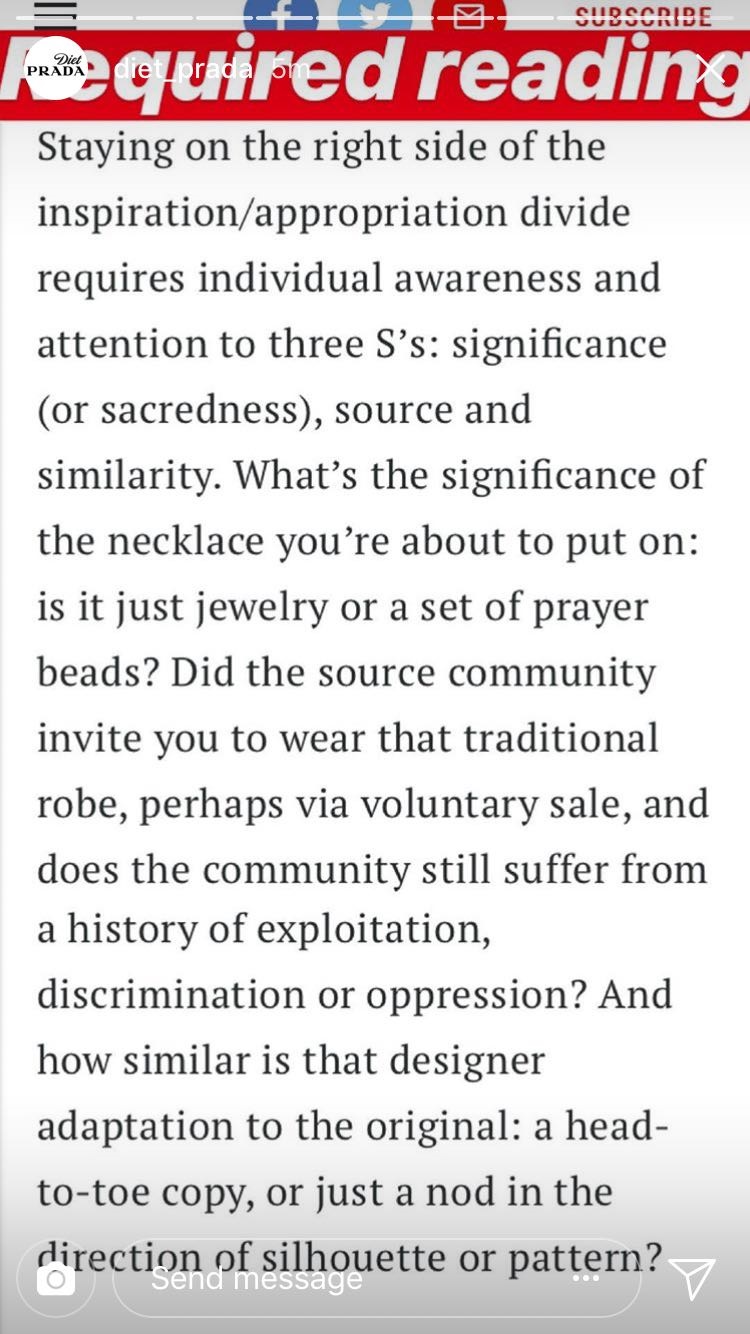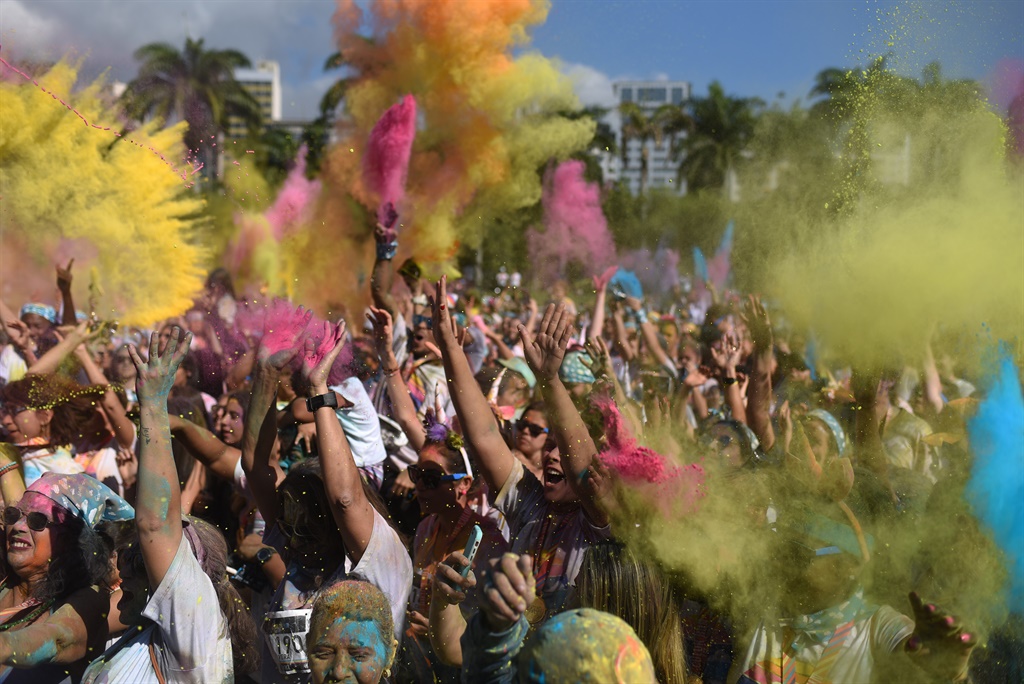The fashion and beauty industry, in particular, is constantly showing us its ignorant and still predominantly white-washed nature. Be that in its cultural appropriation or its lack of diversity.
Michael Morris, head of media at the SA Institute of Race Relations describes cultural appropriation as: “...the subject of much scholarship as well as activism is often regarded as 'misappropriation', or distortion, desecration or even theft of ideas, symbols, artefacts or other aspects of culture, usually by a 'dominant' culture.
"It will doubtless always be the subject of argument – but at the heart of it is that humans are instinctively, inventively and promiscuously imitative; we pick up ideas, styles of clothing, turns of phrase from those around us and use them or rework them as fancy or convenience take us.
Image: Giphy
"Ultimately, all culture is human culture, a rich hybrid born of the cross-pollination of millennia. We are wired to borrow, share, refashion, and 'own' ideas and things that appeal to us or our useful. Calling it exploitation or misappropriation is probably always only a proxy for one or another of the political resentments of any given time."
But Twitter said so...
If we consider how we are informed of 'appropriated' additions to the world - in terms of products and advertising - we usually hear about it via social media.
And often, social media has already made up our minds for us. We sometimes simply jump on the bandwagon. And yes, some things are just so blatantly racist that even those with the most 'right-wing' views would say "that’s taking it a bit far"; but there are also cases that we don’t take care to study, to understand yet are offended by because others have called upon it as being racist and offensive.
But local designer Siyethemba Duma of the brand Matte Nolim says we are too obsessed with referencing.
“‘Culture’ has been reduced to sub culture; we have come such a long way as Africans and have been inspired by other cultures to such an extent that we think less of our people; and we want to appeal to the world so much as youth but as soon as another race takes from the other it's a big debate.
Image: Giphy
“Yet we struggle holding onto what is ours, and cry crocodile tears when it's taken as inspiration. Twitter loses its thumbs when referencing is left out and ideas are presented as your own genius.
“Think, DJ Bongz Gwara Gwara Dance - Twitter South Africa lost it because it was not referenced. If things are referenced only then do we see it as appreciation, but the moment you ‘own’ it without referencing, they will come at you hard!”
READ MORE: Kimonos: Appreciation or appropriation?
Is there such a thing as a 'pure culture'?
Marc Jacobs was criticised in 2016 for sending his models down the runway donning colourful dreads. But who can claim dreads today purely as part of their culture and theirs alone?
What is 'theirs' vs. 'ours'?
READ MORE: Why I’m No Longer Talking to White People about Race
Michael Morris says, "It will always be arguable whether absorbing one pattern or style into another and transforming both dilutes the cultural purity of the original. Then again, no culture is ever fixed or ‘pure’, but always in flux.
"Two instances are the history of tartan fabrics in the Caribbean, and our very own not-so-indigenous Shweshwe cloth, which actually traces its earliest origins to a fashion craze (for 'indiennes', or Indian cottons) that swept through Europe from the mid-1600s.
READ MORE: All hail shweshwe: The history and rebirth of an iconic fabric
"Colonialism introduced the cloth to southern Africa where its 'appropriation' gave it new forms and turned it into an iconic feature of the regional cultural landscape. The fabric continues to evolve, featuring in contemporary fashion design."
Cultures the world over have been influenced by various practices of other cultures, dreadlocks being one of them. Now this hairstyle manifests itself today as the result of these years of 'collaboration'.
If we think about locs, for many it has a spiritual affiliation, thinking of Rastafarianism. For others, it is a hairstyle long worn by black people who have celebrated the style but been seen as unkempt for styling their hair in this way. Which still carries a stigma. (Giuliana Rancic just thinks of 'patchouli and weed').
Image: Giphy
Yet its roots go back to 2,500 BCE according to Refinery 29. Twisted locks of hair were also found in Egypt as mummies were found with dreads. Even Samson has been said to have rocked dreads in Biblical times.
READ MORE: Kim Kardashian facing backlash for dressing as Aaliyah on Halloween is just ridiculous
News24’s Deputy News Editor, Mpho Raborife weighs in, saying "...no one’s culture exists in a bubble, and influences will naturally occur and lines will continue to become blurred as we grow to become more and more of a global community. And with that will come the natural curiosity about other people’s cultures and traditions which may be different from our own."
Yet local stylist Bee Diamondhead disagrees, saying she always uses this quote by Diet Prada when asked about appropriation:
Who benefits from this collaboration?
Collaboration can be good and it can bring forth the birth of something unique, something that could have only been a result of a specific incubation.
However, there are many, many cases where brands take from other cultures without contextualising; and by doing so 'steal', misrepresent or perpetuate stereotypes, often painting cultural groups as criminals or gangsters.
Let’s use the ‘colour run vs Holi’ as an example.
Raborife notes that "I have a Hindi friend who finds the sports event to be a blatant example of cultural appropriation. The Holi festival – also known as a colour festival is also celebrated as a thanksgiving for a good harvest. She felt that the sports competition was making a profit of the ‘festival of colours’ factor in the event, which made it stand apart from other races, without acknowledging the origin of what the festival and what the meaning behind the splashing of colours symbolises."
Therefore, copying or modifying an age-old cultural custom, tradition or style, which does not contextualise where that element was taken from is problematic.
READ MORE: 5 ways to join in the fun this Halloween without being problematic
Local designer Maria McCloy says it's important to consider the power balance and who gains financially.
"I believe if designers use other peoples cultures those cultures should be involved creatively and gain monetarily from those cultures. So say I make Zulu inspired sandals and bags it'd be ideal to pay Zulu people to work on those items and for that culture to be acknowledged in the creative process - this was not the case when Marni stole the Zulu sandal for instance.
"If you do Ndebele or Masaai inspired work why not work with those people, acknowledge their culture properly instead of a general word like 'tribal' or at the very least give back financially to those people. It's not news that Africa is fly and inspiring and gorgeous, we know we are as we have been since time begun - the problem is powerful global brands with more money power and networks taking from us, not acknowledging us and not including us in the financial gains."
We've been debating a lot about this piece in the office. What do you think? Mail us with your comments chatback@w24.co.za.
Images: Getty
Sign up to W24’s newsletters so you don't miss out on any of our hot stories and giveaways.




 Publications
Publications
 Partners
Partners





